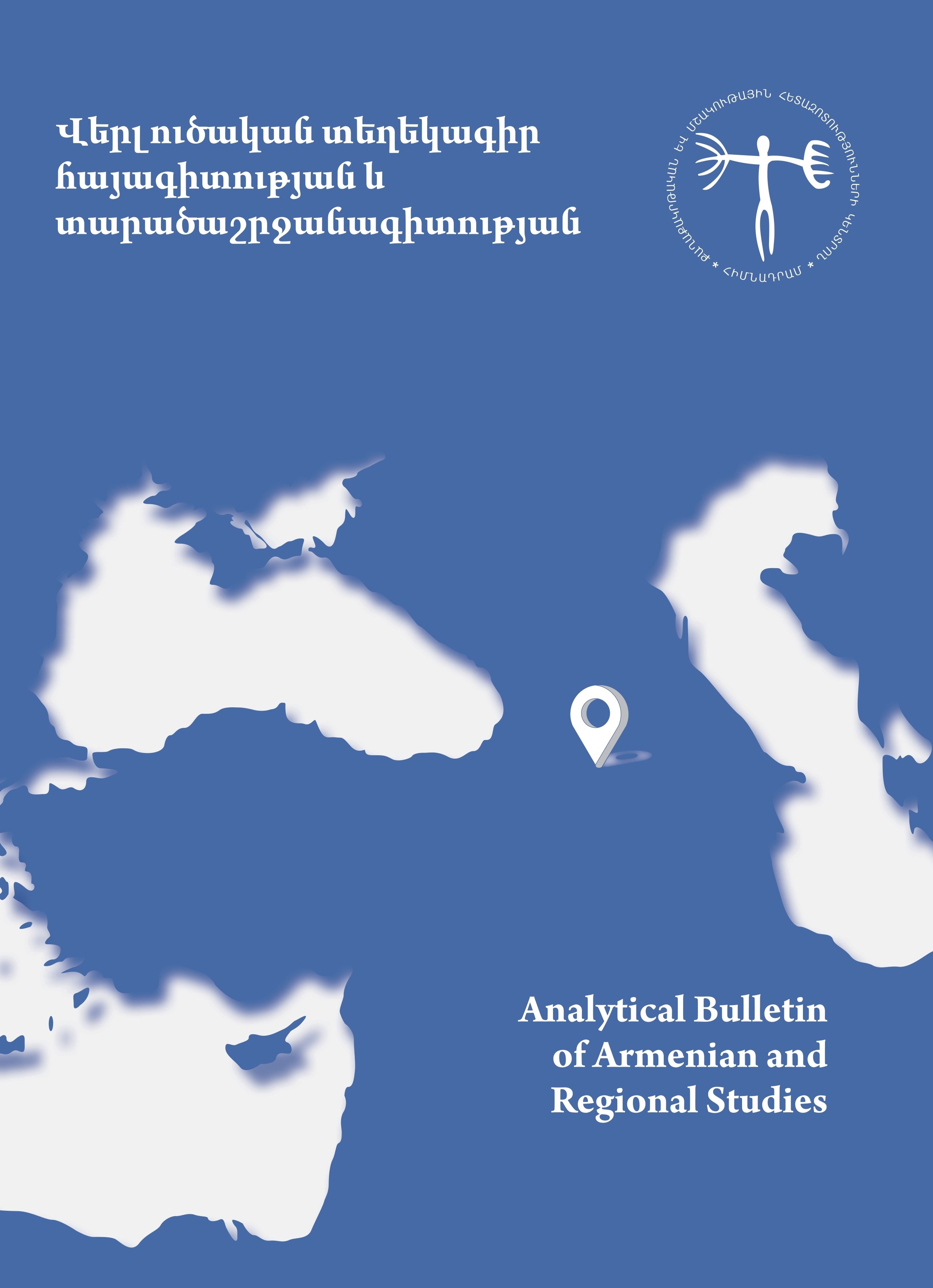Conflicts Of Interest over the Libyan Crisis and Its Impact on the National Security of Armenia
DOI:
https://doi.org/10.56673/18294502-22.14-104Abstract
The Arab Spring, a chain of anti-government protests and uprisings, had major implications throughout the Middle East region and it particularly affected oil-rich countries, including Libya. Libya is the largest holder of proven oil reserves in Africa (48 billion barrels). Before 2011, Libya’s oil production averaged about 1.64 million barrels per day, about 96% of the government’s revenue, which accounted for 60-65% of the country’s GDP. During the reign of Muammar Gaddafi, Libya’s oil industry was run by the state-owned National Oil Corporation (NOC), which was responsible for implementing Exploration and Production Sharing Agreements (EPSA) with international oil companies (IOCs). Among these international oil companies were ENI (Italy), Total (France), Repsol (Spain), OMV (Austria) and Equinor (Norway). Colonel Muammar Qaddafi was not considered to be a reliable partner for the above-mentioned international oil companies. He used to demand tough contract terms, frequently raised fees and taxes and made other restrictions. This policy was in stark contrast with the interests of foreign actors, especially a number of Mediterranean European states, which led to their active participation in Libyan politics with the desire to gain a greater share of oil production and increase their influence in Africa.
The main struggle over Libya is for control over oil resources which are highly necessary for a number of external actors in order to ensure the dynamic development of their economies and strengthen their geopolitical position but which are also needed by regional actors to ensure their own security. From the point of view of global governance, each actor in this conflict is trying to implement its global agenda by having political control and a military presence in Libya.
The main aim of this study is to analyze the conflict of interests between local, regional and international actors over the Libyan issue, which, undoubtedly, affects the policy of these forces towards our region, and to understand how these developments in a country “far from” Armenia can influence the Republic of Armenia’s national security and foreign policies.
References
“Oil Production, Libya, Annual,” US Energy Information Administration, https://www.eia.gov/opendata/qb.php?category=1039874&sdid=STEO.COPR_LY.A, last accessed 8 August 2021
Libya Political Agreement, Skhirat, 17 December 2015, https://unsmil.unmissions.org/sites/default/files/Libyan%20Political%20Agreement%20-%20ENG%20.pdf, last accessed 2 June 2020
“Oil and Gas in a New Libyan Era: Conflict and Continuity,” The Oxford Institute for Energy Studies, February 2019, https://www.oxfordenergy.org/wpcms/wpcontent/uploads/2019/02/Oil-and-Gas-in-a-New-Libyan-Era-Conflict-and-Continuity-MEP22.pdf, last accessed 4 July 2020
“Eni, BP and NOC sign deal to resume Libyan exploration,” Eni, 8 October 2018, https://www.eni.com/en-IT/media/press-release/2018/10/eni-bp-and-nocsign-deal-to-resume-libyan-exploration.html, last accessed 27 July 2022
“Libya: Agreement Between NOC and Total Endorsing the Group’s Entry into the Waha Concessions,” TotalEnergies, 12 October 2019, https://totalenergies.com/media/news/pressreleases/libya-agreement-between-noc-and-total-endorsing-groups-entry-waha-concessions, last accessed 6 April 2021
“Memorandum of Understanding Between the Government of the Republic of Turkey and the Government of National Accord-State of Libya On Delimitation of the Marine Jurisdiction Areas in the Mediterranean,” signed 27 November 2019, United Nations, https://www.un.org/Depts/los/LEGISLATIONANDTREATIES/PDFFILES/TREATIES/Turkey_11122019_(HC)_MoU_Libya-Delimitation-areas-Mediterranean.pdf, last accessed 14 March 2021
Ronald Bruce St John, “The Soviet Penetration of Libya,” Royal Institute of International Affairs, The World Today 38, no. 4 (April 1982):136-137, https://www.jstor.org/stable/40395373, last accessed 6 February 2021
Downloads
Published
How to Cite
Issue
Section
License
Copyright (c) 2022 Shushan Kyureghyan

This work is licensed under a Creative Commons Attribution-NonCommercial 4.0 International License.









